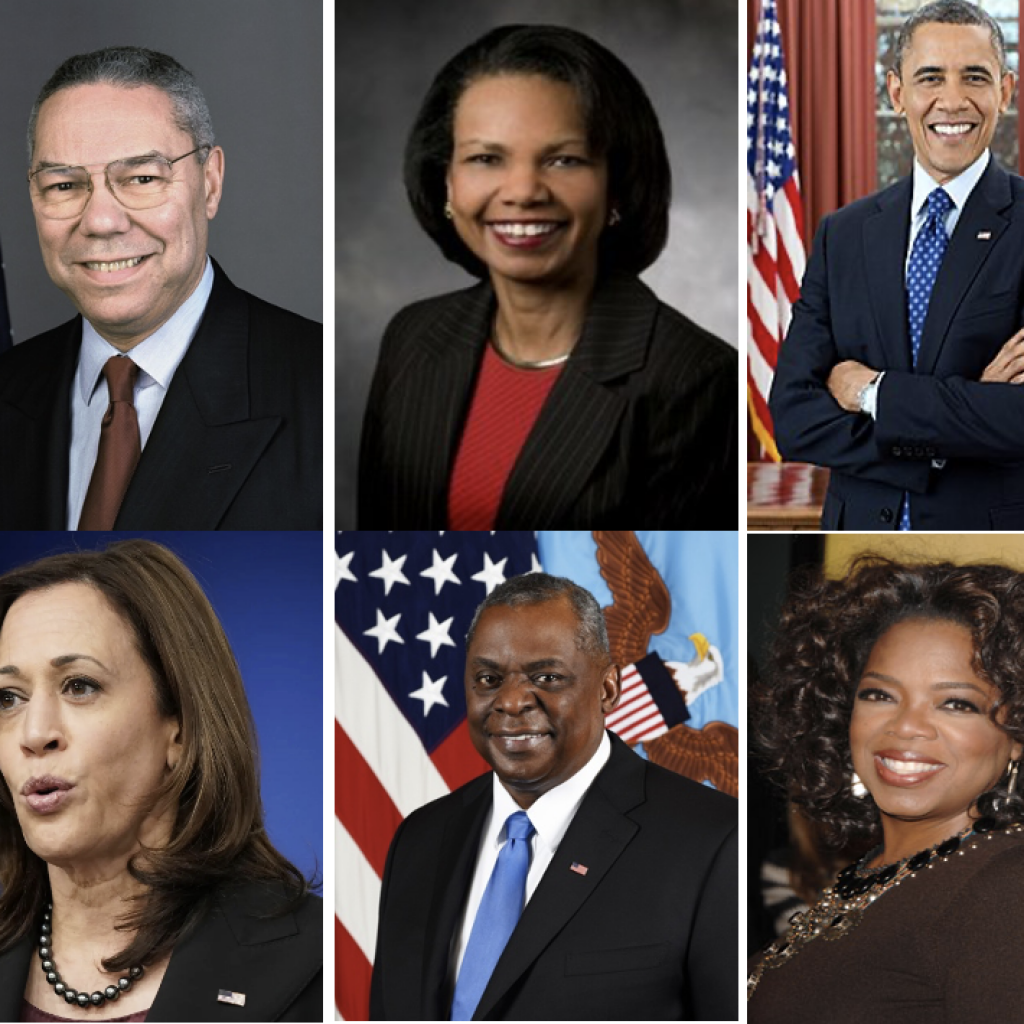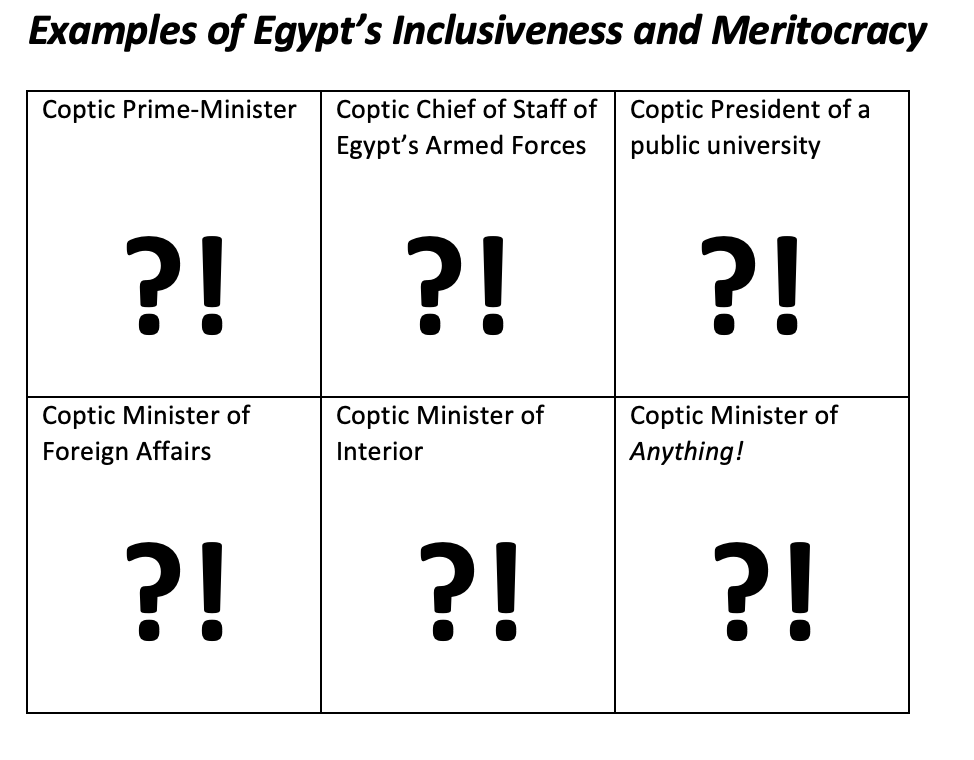By Raymond Ibrahim – for Coptic Solidarity –
On Jan. 17, 2023, Presidential Decree #12 was announced in Egypt. It lists 100 newly appointed vice-presidents of the State Council. Only one of them is a Copt, a member of Egypt’s native Christian population, which makes up 10-15% of the nation’s population.
As Coptic Solidarity observed, “This is one more proof—if proof was needed—that severe and systemic discrimination against Egypt’s indigenous Christian Copts is a state policy, sanctioned by the President personally.”
This is, indeed, just the latest instance of overt discrimination.
A few months earlier, in September, 2022, Abdel Fattah al-Sisi issued several other presidential decrees for the appointment of new deputy prosecutors. Out of 516 hires, a paltry five—meaning less than 1%—were Christians. Meanwhile, the Egyptian embassy in Washington D.C. boasts of Sisi’s efforts to ensure “meritocracy in civil service.”
One month before that, in August, 2022, the president of Cairo University assigned 31 new directors, deputy directors, managers, and researchers to head a number of departments, including those of agriculture, medicine, engineering, nursing, dentistry, statistical research, and African Studies. Not a single one of them was Christian. All were Muslim.
Similarly, in March, 2022, 98 female judges took the legal oath in preparation for assuming judicial roles in Egypt’s State Council. This was considered a major and unprecedented development. Since its inception 75 years earlier, not a single woman had sat on the podium of the State Council court—and now 98 are. Yet, not one of them is a Christian—again, despite the fact that the Copts account for between 10-15% of Egypt’s population, suggesting that at the very least 10 of the 98 should have, for proper representation, been Christian.
The list of areas where Copts hit an invisible (or rather very visible) ceiling of 0-2% of public posts is long; it goes from the military to the police and diplomatic corps, from academia to local governance, from public companies to media.
Such overt discrimination persists in even less “formal” settings. Take football (American soccer), for example—a very popular national pastime in Egypt. As Coptic Solidarity repeatedly reported (e.g., here, here, and here), and as Aid to the Church in Need noted in a February, 2022 report,
Christians make up around 15% of the population of Egypt and are as football-crazy as their Muslim neighbours, but there is not a single Copt in the national team….There are no official statistics on the number of Copts in Egypt, but estimates vary between 10% and 20%. … The fact that no Copts, of any denomination, are represented in top-level football, and therefore in the national team, stings.
Perhaps the best way to underscore what is happening to Egypt’s Christian minority is by analogy. If Copts make up 10-15% of Egypt’s population, that places them in a very similar position to blacks in America, who are reportedly 13.6% of the population.

Despite being such a small demographic, blacks hold all sorts of public and official offices, often beyond their respective percentage and minority status. A black man, Barack Obama, was elected president, and a black woman, Kamala Harris, is currently vice president. A black man, Lloyd Austin, is the current Secretary of Defense. Before him, Colin Powell was Chairman of the Joint Chiefs of Staff of the U.S. Armed Forces, and later became Secretary of State. He was succeeded by a black woman, Condoleezza Rice.
There are many black senators, governors, and congressmen; successful black CEOs, physicians, scientists, and professors; and, of course, black athletes. Most notably in the media—from big budget Hollywood to local advertisements—blacks appear to be overly represented than their respective population might warrant.

Now, imagine the reverse; imagine if blacks, who make up 13.6% of America, held only 0-1% of all the important and prestigious positions. What would be said of the U.S.—and how would the “progressives” howl?
Meanwhile, little is said of Egypt, and no one but its Christians howl.
At any rate, here is a reminder that discrimination—to say nothing of outright persecution and even slaughter—is not limited to race, but religion.




